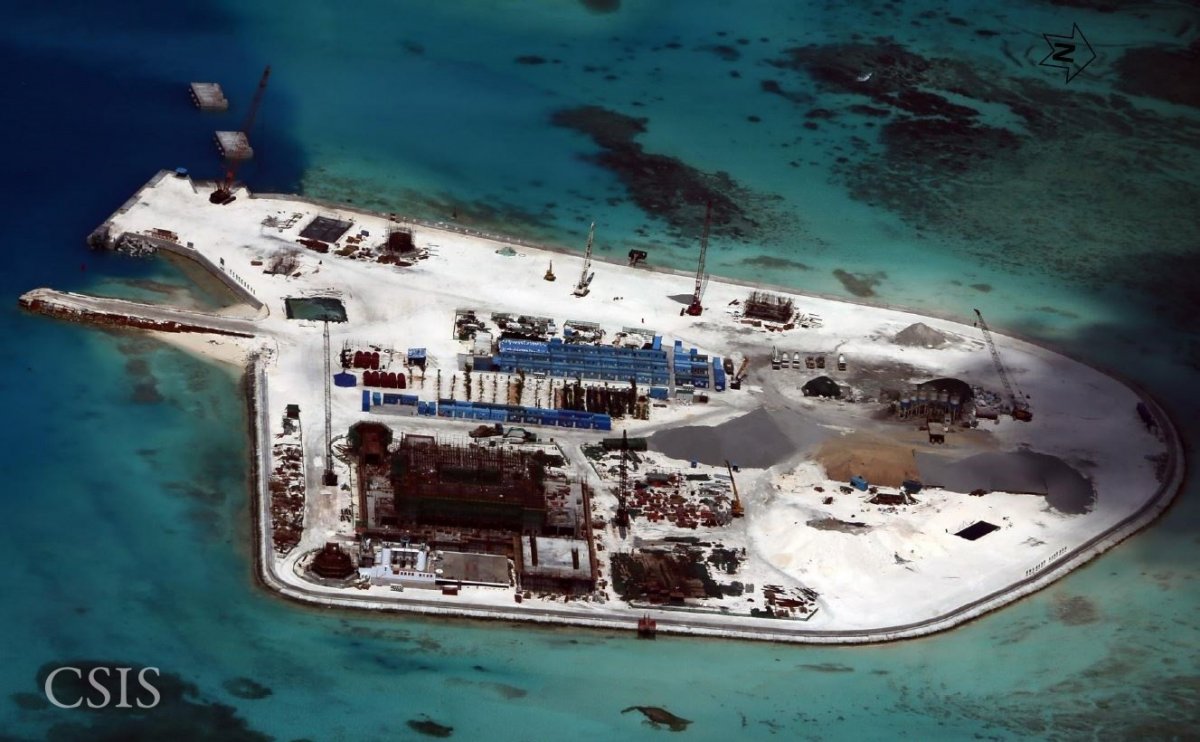Headline
Violence is not an option to West Philippine Sea disputes – Palace

This handout photo taken on March 17, 2015 by satellite imagery provider DigitalGlobe and released to AFP by the Asia Maritime Transparency Initiative department at the Center for Strategic and International Studies (CSSI) think tank shows a satellite image of vessels purportedly dredging sand at Mischief Reef in the Spratly Islands in the disputed South China Sea. The series of satellite images posted on the website of the Center for Strategic and International Studies last week show a flotilla of Chinese vessels dredging sand onto Mischief Reef and the resulting land spreading in size. Beijing on April 9 reaffirmed its right to build on the disputed islands after the satellite imagery emerged of construction operations turning tropical reefs into concrete artificial islands. The Philippines, Vietnam, Malaysia, Brunei and Taiwan all have overlapping claims in the area. (AFP Photo / CSIS Asia Maritime Transparency Initiative / DigitalGlobe)
MANILA – Amid the efforts of the government to modernize the Armed Forces of the Philippines (AFP), Malacanang on Friday clarified that violence is not an option in resolving territorial disputes in the West Philippine Sea.
”At this point, we all know that violence is not an option as a response to this particular dispute,” Deputy Presidential Spokesperson Abigal Valte said in a press briefing in Malacanang.
Valte said the government would continue to pursue the tracks that it had already taken such as elevating China’s aggressive approach to the international tribunal like the United Nations Convention on the Law of the Sea, or UNCLOS.
”We will continue to pursue those tracks. I’m interested to know what other tracks may be available,” she said.
Valte clarified that the ongoing AFP modernization “geared towards the improvement of our capacity.
”
”It is not in response to any issue that confronts us now. The (AFP) modernization has been neglected for so long and it’s not… It is not being done, again, as a matter of response but as a matter of necessity for our troops,” she said.
Valte added that the policy of the administration of President Benigno Aquino III has always been to avoid incidents that would tend to increase tension.
During the last Thursday’s Senate hearing on the WPS, the Department of Foreign Affairs (DFA) said China was not an enemy despite its massive reclamation that already covered seven reefs, including the Panganiban or Mischief reef which is within the Philippines’ exclusive economic zone.
DFA assistant secretary Benito Valeriano has said the Philippines had already filed eight diplomatic protests since April 2014 in response to the China’s aggressive approach in the WPS territorial disputes.
In the same Senate inquiry, National Security Council (NSC) director general Cesar Garcia Jr. said the AFP should focus from domestic to external security, saying the territorial disputes in the WPS has overtaken all national security concerns.
”We see no cogent reason at this point to disagree with the assessment of the National Security Adviser,” Valte said.





















